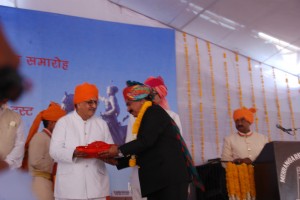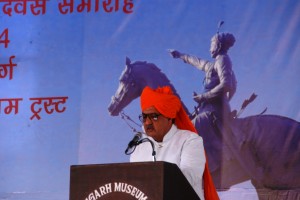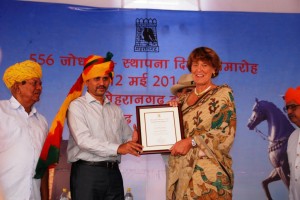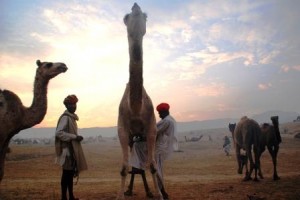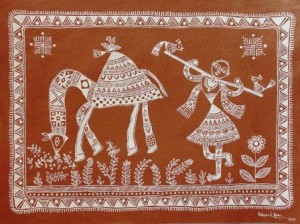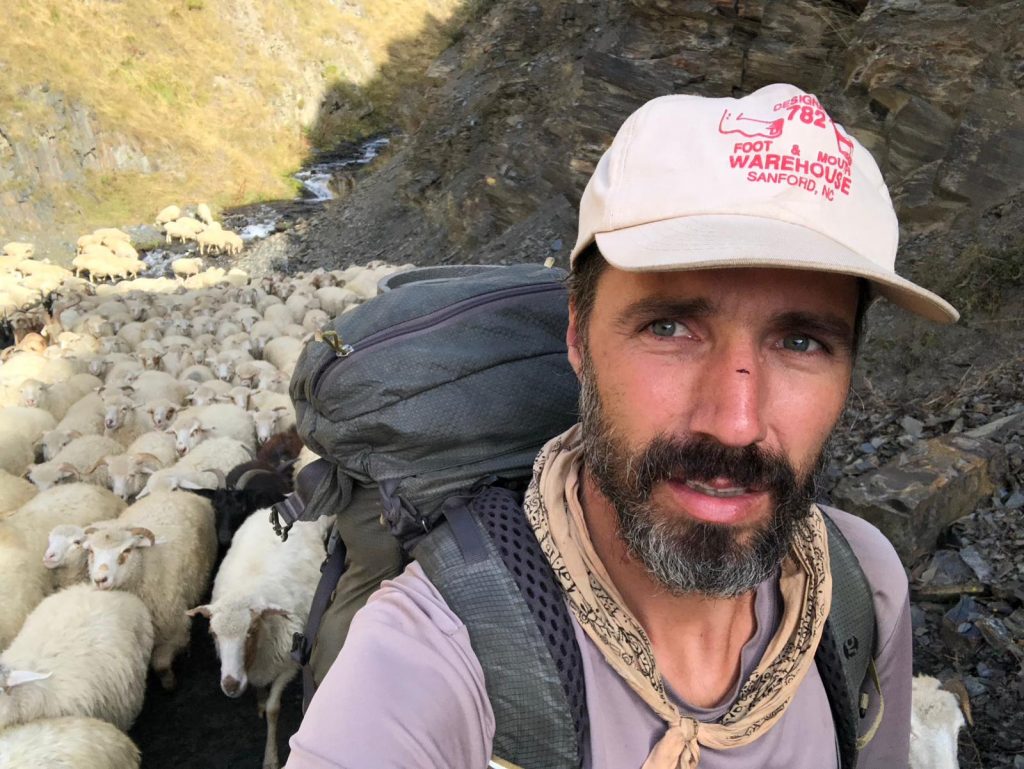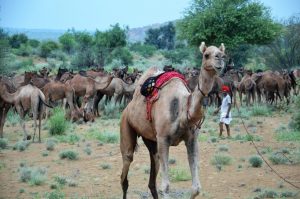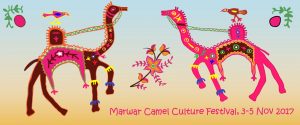On the occassion of the 556th Jodhpur Foundation Day and coronation year of H.H. Maharajah Shri Gaj Singhji Sahib of Marwar Jodhpur on 12th May, LPPS director Shri Hanwant Singh Rathore and LPPS advisor Dr. Ilse Köhler-Rollefson will be awarded with the 2013’s Marwar Ratna Award for Exceptional and Outsanding Contribution in the Field of Conservation, Preservation and Promotion of Regional Culture and Heritage by H.H. Maharaja Shri Gaj Singhji II of Marwar-Jodhpur.
This is a great recogntion for LPPS, as well as of the camel as a part of regional culture and heritage and sure augurs well for future LPPS work!
In 2010, LPPS published a “Camel Value Addition Report” which emphasized the urgent need for taking steps to save the camels. This report listed a number of recommendations and now, about four years later, the government has taken the first step that we recommended. We believe that the other steps we listed are still valid, so here we publish the entire list, with comments/updates in bold:
Recommendations
- The camel should be declared as the State Animal of Rajasthan. Since many people, especially in the west, are fascinated by the camel, this would also increase Rajasthan’s attraction as a tourist destination. Such a move would certainly make international headlines. (YES, this has happened!)
- Protection and good maintenance of orans (sacred groves) is essential as nutritional foundation for camel herds. Furthermore, one or more camel sanctuaries should be established, and a provision for camels must be made in the planned Kumbhalgarh National Park. (This point is crucial! We suggest organising a state level consultation with camel breeders and officials, including from the Forest department and the Revenue department, to identify the “hot spots” and discuss how to go about protecting these areas.)
- The infrastructure for the collection and processing of camel milk should be put into place. A network of chilling tanks or plants would enable camel breeders to supply milk. In Jaisalmer district alone, there are 15,000 female camels which could produce at least as many litres of milk per day. Furthermore, camels provide milk just at the time when buffalo and cow milk is at its lowest. (This point is important to create economic incentives for keeping female camels and to prevent them from being sold for slaughter or just perish away due to neglect. We suggest that the first area of intervention should be Udaipur and Chittorgarh districts where camel milk is already sold, albeit very cheaply and not under its name.)
- A credit and loan programme for small enterprises based on camel products (wool, leather, bones, camel cafes, etc.) should be established. (We need not only credit and loan programmes, but to think about how to revive the multitude of camel related crafts. We also need research and development on camel raw materials, as well as design inputs!)
- A camel health care system is absolutely essential. So far, the animal husbandry system has not paid any attention to the camel. Considering that camels often stay in very remote areas, the best approach would be to establish a decentralised health care system. The role of vet. doctors would mainly be to train interested youths in treating the main camel diseases. (Absolutely essential! Many camels die because treatment for the two main diseases, mange and trypanosomiasis, is not available.)
We at LPPS are absolutely delighted that the camel is to be given special status as state animal and special heritage of Rajasthan! This is certainly an important step for which we are grateful to the Chief Minister. But how to actually reverse the trend of camel decline and make sure it survives for coming generations?
Well, a few years ago, LPPS already organised a National Consultation on this issue in which many important stakeholders participated. For some of the strategies that were idenetified to revive the camel economy, please have a look at one of the presentations given at this National Consultation on How to Save the Camel.
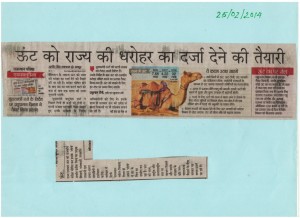 We are delighted to report that Rajastan’s new Chief Minister, Shrimati Vasundhra Raje, is moving swiftly to save the camel and give it special heritage protection. An act is being prepared for the Legislative Assembly. It contains support for camel breeders who are all supposed to get registered, there are provisions for protecting grazing areas, even to some extent in the forest (we hope this refers to the Kumbhalgarh Protected Area). All government departments are to use the camel as their emblem, there will be support for marketing camel milk and other products.
We are delighted to report that Rajastan’s new Chief Minister, Shrimati Vasundhra Raje, is moving swiftly to save the camel and give it special heritage protection. An act is being prepared for the Legislative Assembly. It contains support for camel breeders who are all supposed to get registered, there are provisions for protecting grazing areas, even to some extent in the forest (we hope this refers to the Kumbhalgarh Protected Area). All government departments are to use the camel as their emblem, there will be support for marketing camel milk and other products.
However we are a bit concerned about the suggested ban on taking camels out of the state to protect them from slaughter. It means that farmers in adjoining states (Punjab and Haryana) may suffer hardship. So an exemption should be made. Also some thought needs to be devoted to what is going to happen to old and useless camels. It is also a fact that most camel breeders survive because of the demand for camels for meat.

